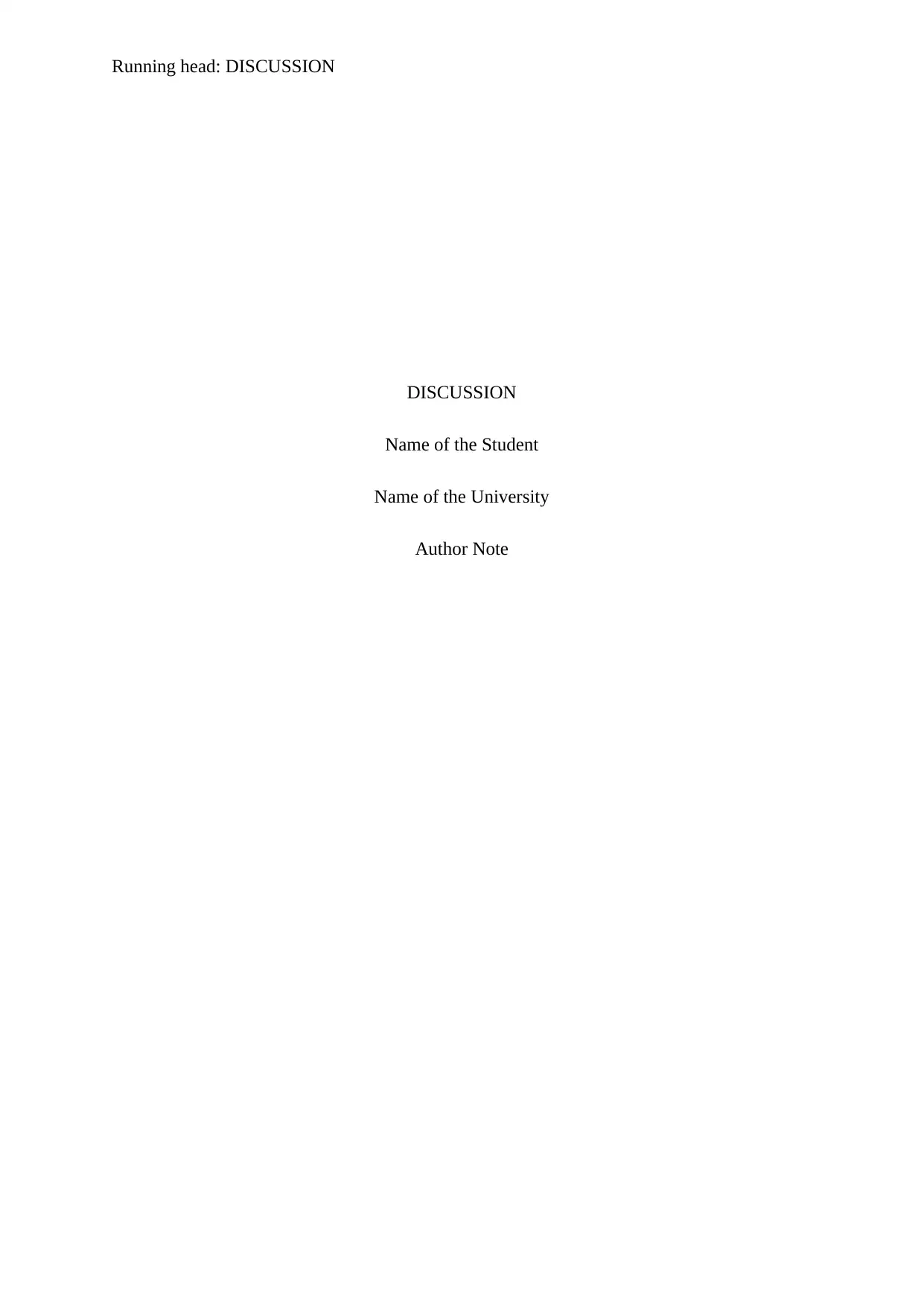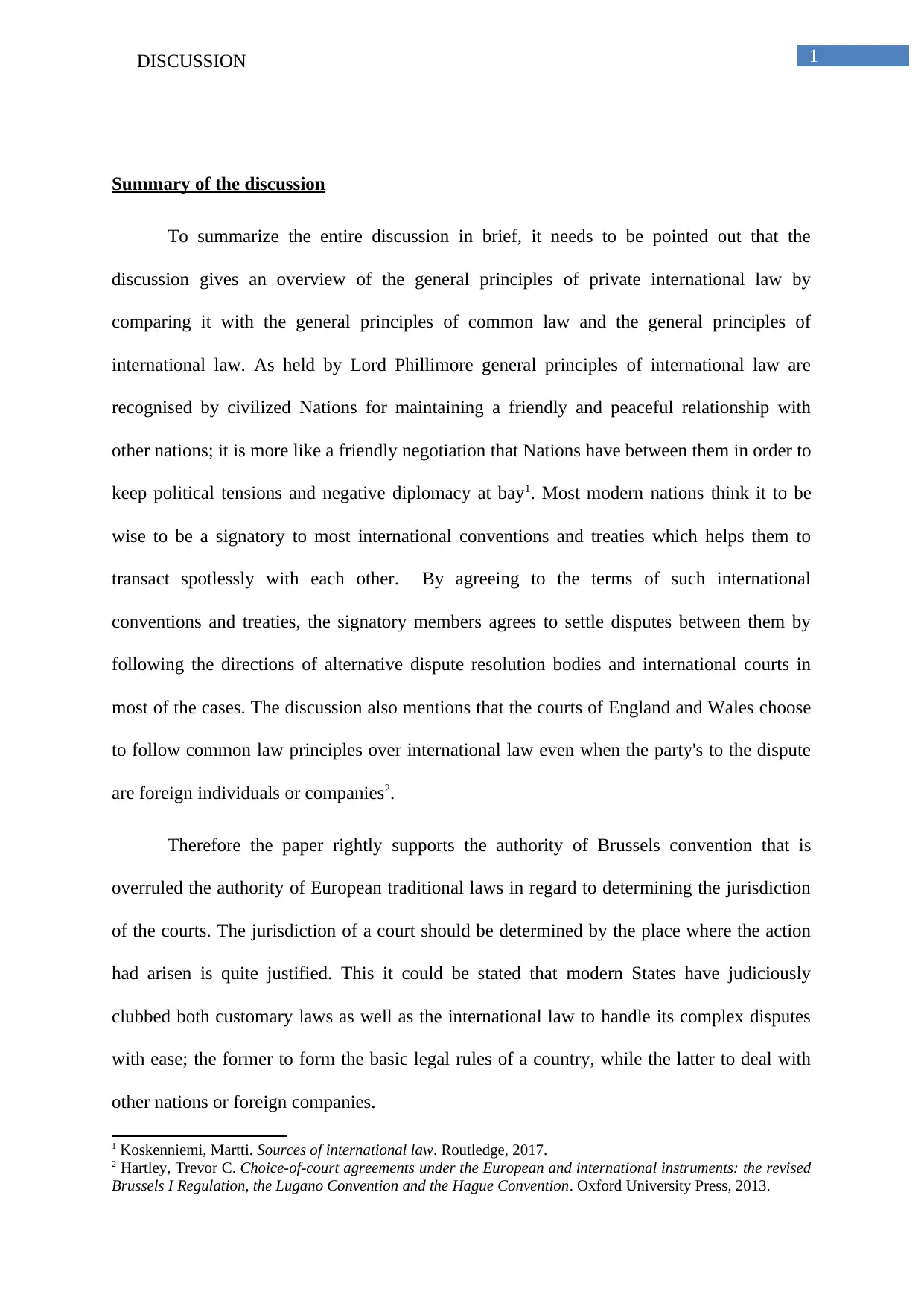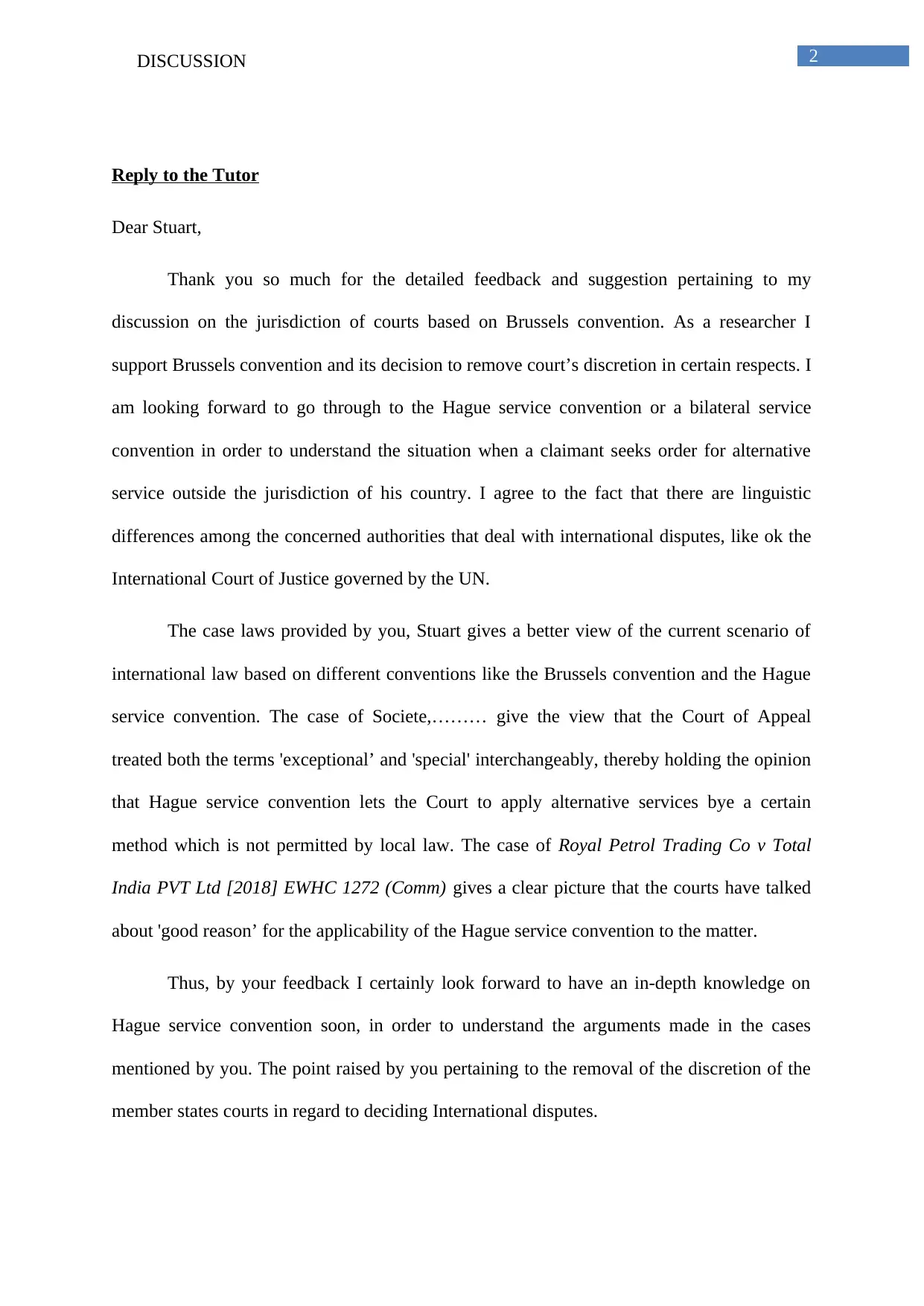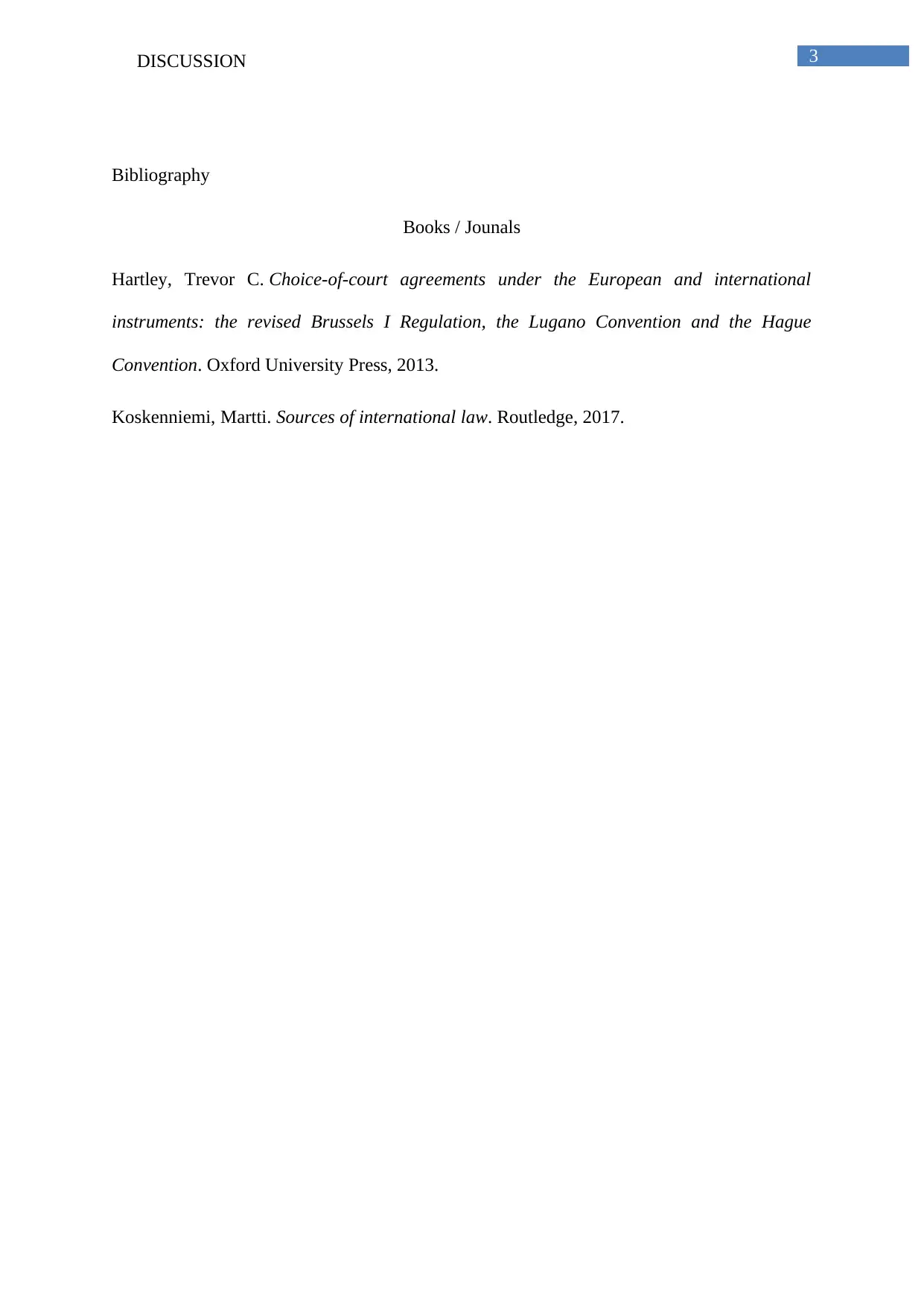Private International Law: Brussels Convention and Court Jurisdiction
VerifiedAdded on 2022/09/23
|4
|678
|61
Discussion Board Post
AI Summary
This discussion post examines the principles of private international law, comparing it to common and international law, and focusing on the Brussels Convention's role in determining court jurisdiction. The author summarizes the core concepts of the discussion, which includes the general principles of international law, the importance of international treaties, and the preference of English and Welsh courts for common law. The post also includes a response to feedback from a tutor, where the author agrees with the Brussels Convention's approach and expresses interest in learning more about the Hague Service Convention. The discussion provides insights into the interplay of customary laws and international law in resolving complex disputes between nations and foreign companies. The author also provides references to relevant books and journals to support the analysis.
1 out of 4











![[object Object]](/_next/static/media/star-bottom.7253800d.svg)